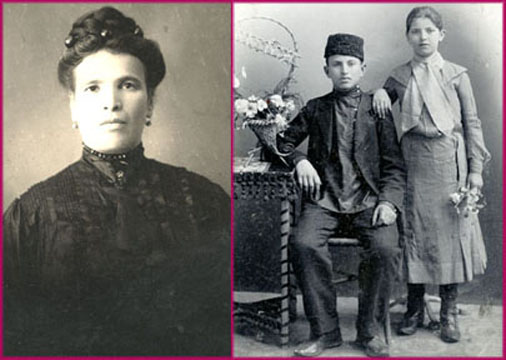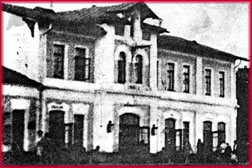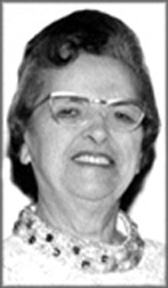


Beyla, Iser (Izzie), and Chaika (Ida) Waxman
Ida (Chaika) Waxman-Einbinder Wiesenthal, daughter of Jacob Waxman and Beyla Cohen and stepdaughter of Joseph Einbinder, was born in Kalarash in February, 1892. She was 13 years old at the time of the 1905 Kalarash pogrom. Her parents had divorced amicably and her father was living in America. After the pogrom, Jacob wrote to Beyla and begged her to send him photographs of their children, so that he could be certain they had survived the pogrom. Beyla and the children went to Kishinev, where the above photograph of Chaika (Ida) and her brother Iser (Izzie) was taken.

Kalarash had only three streets from one end of the town to the other. And the pogromchiks, the peasants, they started in all the three streets to make the pogrom. And we were in the middle street. My mother was in the street and she came around and she took my brother Izzie and myself and she took us both and she says "Let's go down to the voksal." Voksal is where the train goes, the station. "Let's go down to the station." I was ten, eleven years old. And she took us down. We walked, and nobody saw us. Just luckily they were busy with the other streets and they didn't notice us and we came down there to the station.
Kalarash railroad station
They were killing the people, killing and robbing them. They went into the houses and they killed them and took everything away what they had in the houses. Then, when we came down into the station it was just lucky that a train just came in and was there standing and we just walked into the train and the train moved away. So when we went up on the train, the conductor from the train said, "All the Jewish people that they're on the train, please lay down on the floor and don't show your faces up on the top because if they would see" --- the pogromchiks were standing on the railroad tracks --- "if they see Jewish faces they're gonna turn over the train and we all gonna get killed." So we all lay down on the floor and we lay quiet as a mouse, till we passed from Kalarash.

My mother was by herself. My father was in America and they were divorced and she wasn't married to Joseph Einbinder yet. She took us to a little town and we went off from the train and she took us over to some inn where people stay and we were staying for some time there until the pogrom stopped. Then she took us home and we were happy again and we were playing. We were just kids. The big people were crying because the pogromchiks killed a lot of people.
Ida Waxman-Einbinder Wiesenthal
(New York, 1967)
Credits: Text, photographs, and page design copyrighted © 2007 by Helene Kenvin. Page created by Helene Kenvin. All rights reserved.